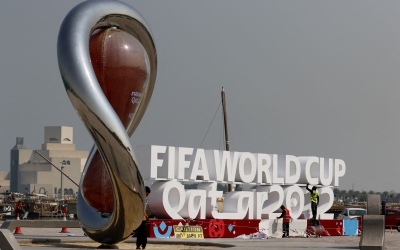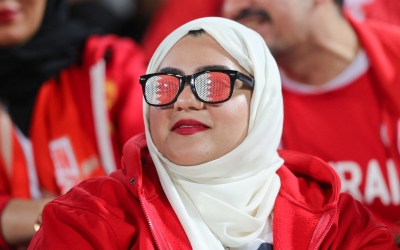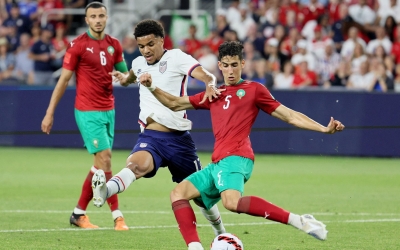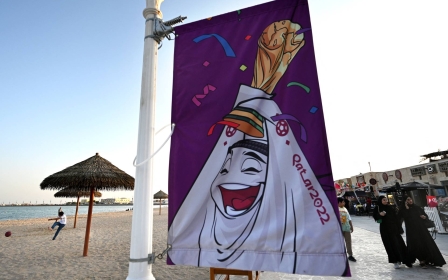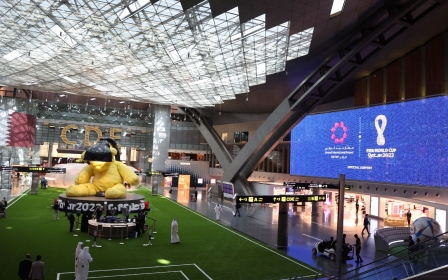World Cup: Expelling countries over human rights sets dangerous precedent, say experts
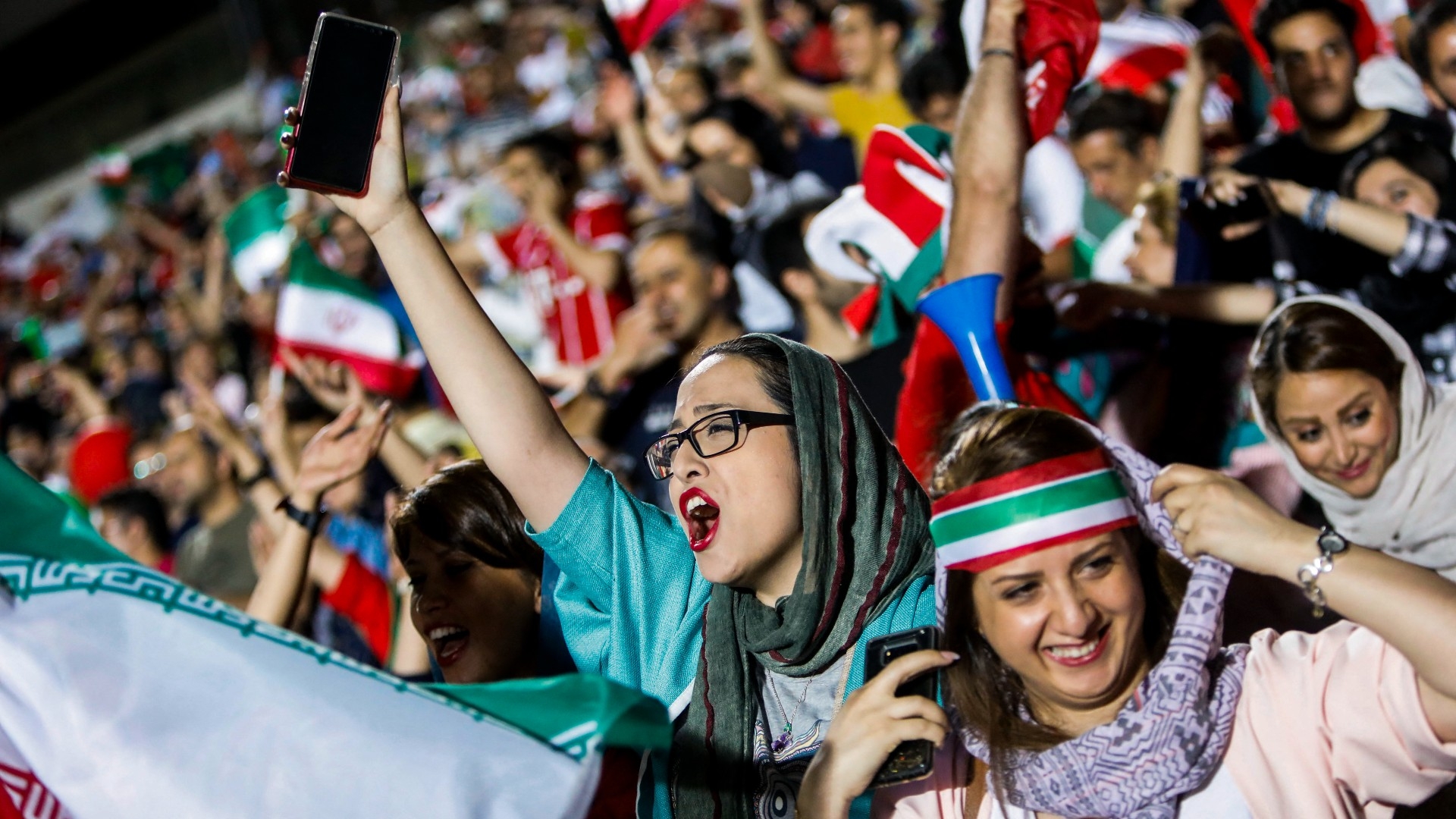
Attempts to kick out Iran from the Qatar World Cup over alleged human rights abuses have highlighted the problems associated with trying to push back against authoritarian states within the realm of sport.
Last month, the CEO of Ukrainian football team Shakhtar Donetsk said the Islamic Republic should be banned from the World Cup and replaced with Ukraine due to its arming of Russia with drones amid its deadly offensive.
The call came weeks after a group of Iranian activists called on Fifa, the football world's governing body, to expel Iran from the tournament and suspend the Iranian football federation because of Tehran's crackdown during recent anti-government protests.
With just days to go before the tournament kicks off in Qatar, the calls have largely petered out, but there are still a number of government critics who continue to push Fifa to take action against Team Melli.
They argue that the Iranian national football team serves as an instrument for the government to garner legitimacy and paint itself as an accepted member of the international community.
In an attempt to lay the issue to bed, Fifa President Gianni Infantino and Secretary General Fatma Samoura recently wrote in a joint letter that: "We know football does not live in a vacuum and we are equally aware that there are many challenges and difficulties of a political nature all around the world."
"But please do not allow football to be dragged into every ideological or political battle that exists," they said, insisting, "Please, let’s now focus on the football!"
Experts have told Middle East Eye that if alleged human rights abuses are to be cited as grounds for prohibiting countries from participating in international sporting events, the precedent should be applied to all nations consistently.
This means countries such as China, Egypt, India, Israel, Saudi Arabia and the United Arab Emirates among others should be banned from sporting events because of their abysmal human rights credentials.
"Indeed, such treatment should apply equally to all countries violating human rights, which mean that very little states would be left in the competition. Double standards will not help Iranians as it only empowers Iranian authorities in denouncing western hypocrisy," said Anicee Van Engeland, an associate professor of international security and law at Cranfield University.
'Planned for many years'
Fifa has faced some blowback after its decision to suspend Russia indefinitely from international tournaments following President Vladimir Putin's all-out military assault on Ukraine.
The decision came as a surprise as other than the exclusion of South Africa and Rhodesia due to apartheid, examples of expelling national teams from the tournament are hard to come by.
Nazi Germany took part in the 1938 World Cup, as did France in the World Cups of the 1950s despite the country's bloody wars against independence movements in Algeria and Indochina.
Meanwhile, the Argentinian military junta hosted the 1978 World Cup and Nigeria was allowed to compete in the 1970 World Cup qualifiers despite its government waging a war against Biafrans which at the time resulted in the deaths of up to 2 million people by starvation.
Faraz Shahlaei, an adjunct professor at Loyola Law School specialising in international sports law, said the protection of human rights also means the protection of the rights of athletes who are not official envoys of the governments.
"Individuals should not be sanctioned because of what governments have done. I have said this with respect to the blanket ban on Russian athletes after the revelation of Russia's state-sponsored doping programme."
"If we believe in human rights the first step is to respect and recognise the rights of athletes who have planned and worked hard for many years to earn a living from their careers," he told MEE.
Shahlaei believes human rights are becoming relevant considerations for sports bodies.
"The International Olympic Committee has created a human rights framework with the help of top international human rights experts and a growing number of international federations are incorporating human rights clauses in the founding documents," he added.
'Proud of its athletes'
There are others who point to what is perceived as a hypocrisy in the calls for boycotting Iran's national football team and other sports delegations from international venues.
Many of those campaigning for such restrictions used to be former athletes who represented the Islamic Republic and had the luxury of having their overseas trips funded by the government.
"Some of the activists who are now encouraging the international community to implement more sanctions and disciplinary action against the Iranian sports teams and athletes are from the Iranian elite and some have also worked with the current government in the past,” said Zahra Tizro, an Iran expert and senior lecturer in psychology and social change at the University of East London.
"It seems hypocritical that they are now fighting to deny young athletes professional opportunities and the country a chance to come together.
"The Iranian team could provide a sense of unity, which is needed more than ever now, when there is a risk of escalation in Iran which will be felt most harshly by the poorest and ultimately undermine protestors’ progressive aims," she added.
There is still sympathy with the cause of the boycott with many who believe it would send a strong message to the government in Tehran that rights violations would be retaliated against by the international community. But they also maintain that expelling Iran would eventually ruin a critical opportunity for the country's athletes to show solidarity with the Iranian people and advance the cause of the protests.
"I believe that it would also be naive to dismiss these campaigns and ignore the underlying message behind it which is essentially to raise awareness of atrocities committed in Iran right now," said Sina Saemian, a sports commentator and founding member of Gol Bezan football podcast.
"Banning the national team from the World Cup would also take away a great opportunity to protest, and it would be a missed opportunity in ensuring the voices and protests are heard at one of the biggest sporting events in the world."
Being a fixture at international sports events is a perennial challenge for the Iranian athletes given the country’s characteristic international isolation. Pitching them into further isolation, according to experts, would be miscalculated.
"All athletes work very hard to perform, and Iranian athletes constantly defy the odds as they do not have the same opportunities as French or US athletes. Their appearance in a sports competition is proof of Iranian resilience and the Iranian population is proud of its athletes," said Van Engeland of Cranfield University.
"While former athletes living in Iran are very brave, voicing openly their disagreement with the authorities, they also need to remember how they too brought happiness to Iranians."
Middle East Eye reached out to Fifa and the Iranian football association for comment, but did not receive a response by time of publication.
Middle East Eye propose une couverture et une analyse indépendantes et incomparables du Moyen-Orient, de l’Afrique du Nord et d’autres régions du monde. Pour en savoir plus sur la reprise de ce contenu et les frais qui s’appliquent, veuillez remplir ce formulaire [en anglais]. Pour en savoir plus sur MEE, cliquez ici [en anglais].


